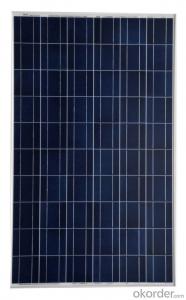Embarking on a journey to harness the power of the sun is an exciting endeavor. Whether you’re looking to save on energy bills, reduce your carbon footprint, or just want to be more self-sufficient, solar panels kits offer a fantastic DIY solution. In this guide, we’ll walk you through the process of setting up your own solar energy system, complete with tips and tricks to make it as smooth as possible.
Why Choose Solar Panels?
Solar energy is a renewable resource that’s abundant and sustainable. Unlike fossil fuels, the sun’s energy won’t run out, and it doesn’t produce harmful emissions. By choosing solar panels, you’re not only making a smart financial decision but also contributing to a healthier planet.
Understanding Solar Panels
Before you start, it’s important to understand the basics of solar panels. They are made up of photovoltaic cells that convert sunlight directly into electricity. The amount of electricity generated depends on the size of the solar panel array and the amount of sunlight it receives.
Components of a Solar Panel Kit
A typical solar panel kit includes several key components:
– Solar Panels: These are the heart of your system, capturing sunlight and turning it into power.
– Charge Controller: This device regulates the voltage and current coming from the solar panels to the battery, ensuring a safe and efficient charge.
– Batteries: They store the electricity generated by the solar panels for use when the sun isn’t shining.
– Inverter: Converts the DC power produced by the solar panels into AC power, which is what most household appliances use.
– Mounting Equipment: This is what holds your solar panels in place and is crucial for optimal sunlight exposure.
– Wiring and Connectors: These are needed to connect all the components together.
Designing Your System
The first step in designing your solar panel system is to assess your energy needs. Look at your electricity bills to determine your average daily usage. Then, consider factors like the amount of sunlight your location receives and the space available for installation.
Calculating the Size of Your Solar Array
Once you know your energy needs, you can calculate the size of your solar array. This involves determining the number of solar panels and their arrangement to meet your power requirements.
Selecting the Right Components
Choosing the right components for your solar panel kit is crucial for optimal performance. Look for high-quality products that have good reviews and warranties. Consider factors like efficiency, durability, and compatibility with other system components.
Installation Process
The installation process can be broken down into several steps:
– Site Preparation: Clear the area where you’ll be installing your solar panels and ensure it’s free of debris and obstructions.
– Mounting the Panels: Attach the mounting equipment to a sturdy structure, like your roof or a ground mount, and secure the solar panels in place.
– Wiring the System: Connect the solar panels to the charge controller, batteries, and inverter using the appropriate wiring and connectors.
– Testing the System: Once everything is connected, test the system to ensure it’s working correctly and producing electricity.
Maintenance and Troubleshooting
Regular maintenance is essential to keep your solar panel system running efficiently. This includes cleaning the panels, checking the wiring and connections, and monitoring the system’s performance. If you encounter any issues, don’t hesitate to consult the user manual or seek professional help.
Going Off-Grid
If you’re interested in completely disconnecting from the power grid, going off-grid with your solar panel system is an option. This requires a more comprehensive setup with additional batteries and possibly a backup generator. It’s also important to consider local regulations and permits for off-grid systems.
The Benefits of Solar Energy
Beyond the financial savings and environmental benefits, solar energy offers a sense of independence and security. Knowing that you’re generating your own power can be incredibly empowering.
Wrapping Up
Setting up a solar panel kit might seem daunting at first, but with the right information and guidance, it can be a rewarding experience. Remember to take your time, plan carefully, and don’t be afraid to ask for help if needed. Embrace the sun’s energy and enjoy the journey to a more sustainable lifestyle.

